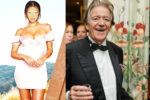 JAMES MORROW
JAMES MORROW
Forget Supernanny. What Australia needs is Superteacher
If there is one show that is appointment viewing in our house – OK, besides Desperate Housewives – it is Supernanny. While most ‘reality TV’ is pure schlock of the worst kind and about as divorced from most peoples’ lives as Kim Beazley’s pledge to block tax cuts, Jo Frost’s Supernanny speaks to the inner what’s-the-matter-with-kids-these-days crank in all of us, parents or not.
Of course, child psychologists and other self-appointed experts, who have spent decades turning families into dictatorships where the kids are in charge, hate the idea of an uncredentialed glorified babysitter like Frost telling parents to take control again. Sydney University academic Stephen Juan, for one, criticised her as a ‘devil version of Mary Poppins’, adding that the show’s approach represents ‘the outmoded view of the controlling parent … it seems to be so anti-children. It puts the needs of the parent first.’
No matter that in every episode, none of the needs of the parents, whether for sleep or rest or intimacy were being met; according to Juan, to borrow the phrasing (and pronunciation) of Frost, discipline is ‘not esseptible’.
But while parents of pre-schoolers have been singing the praises of Supernanny to the point where adults now regularly joke about sending each other to the ‘naughty corner’, once the kids hit school, there’s no buxom British nanny around to keep order. This isn’t the fault of the kids; rather, it’s the fault of educators.
I’ve been reading the recently-released collection, Education and the Ideal: Leading Educators Explore Contemporary Issues in Australian Schooling (New Frontier Publishing, 2004), over the past few evenings, and one thing has become clear: the people responsible for educating Australia’s children need to be sent to the naughty room to have a good long think about what they’re doing to the country. As the various contributors to the book reveal, the past four decades have seen every half-baked left-wing fad and cause turned into a trendy ‘study’ of some sort or other (i.e., ‘peace studies’ during the Cold War, ‘environmental studies’ today, et cetera).
The book paints a disturbing picture of schools where children are taught a watered-down version of history that extends earlier than the 20th century for no other reason than to teach that Captain Cook’s landing represented an ‘invasion’. Where literature students are taught that an episode of Neighbours is just as valid a ‘text’ as a Shakespeare sonnet. And where Marxist thinking, dead everywhere in the world except academia, informs everything.
As a result, the book notes, students are going on to university and entering the workforce with no comprehension of how to string together a proper English sentence – much less diagram one. Barry Spurr, a senior lecturer in English at the University of Sydney notes that his institution has been forced to initiate a ‘first-year unit of study, “University English”, to attempt to deal with students’ grammatical incompetence. The imposing title is followed by a less-exalted course description where it is indicated that there will be provided “practical writing tasks and work designed to strengthen the students’ knowledge of the basic English grammar” … that the schools are failing to achieve this competence, even amongst their brightest matriculating students, after twelve years at school, remains a national scandal.’
In other disciplines, the problems are the same: while there are plenty of competent and dedicated teachers out there, their ranks have been infested by leftist hacks and has-beens who, unable to otherwise succeed in a competitive market economy, seek to bring it down from the inside. As much as possible, this means cutting students off from the vast traditions they inherit in a Western Anglosphere country such as Australia. Much easier to rubbish the achievements of an explorer like Cook and the people who built modern Australia out of virtually nothing than to teach the great dramatic sweep of civilization that makes us what we are today.
Even science hasn’t been spared: in the 1960s rush to dethrone any expert at all, the teachers unions banded together to get ‘science back from the scientists’.
Not surprisingly, the chickens are starting to come home to roost. According to a study recently released by the Australian Council of Educational Research, Australian kids were less literate and numerate – that is, competent with words and numbers – at the end of the 1990s than there were at the end of the 1970s. This despite a doubling in the amount of school funding per pupil in the same period of time. So what’s going on?
Experts point to a number of factors, from low teacher salaries to a lack of competition in the public school arena. But surely the revolution in the Australian curriculum over the past thirty years must take most of the blame: rather than made to learn facts, students are now taught to adopt attitudes (recycling good, corporations bad, the world will end tomorrow, and America is the great Satan). Combine that with a vast number of extras loaded into students’ days, and it’s no wonder that their critical thinking skills, and their ability to read and write and add and subtract is faltering.
As Naomi Smith writes in the introduction to Education and the Ideal, ‘Educationists who have broken radically from tradition … have presumably done so because they think this will result in a better result for society and the individual, one closer to the conception of the ideal. But there is a real danger in all of this that much that was good about our education system – the product, after all, of an inheritance that dates back 2,500 years to ancient Greece, and which was further enriched by the Judeo-Christian tradition – will be lost.’
And that’s something no amount of time in the naughty corner can get back.






